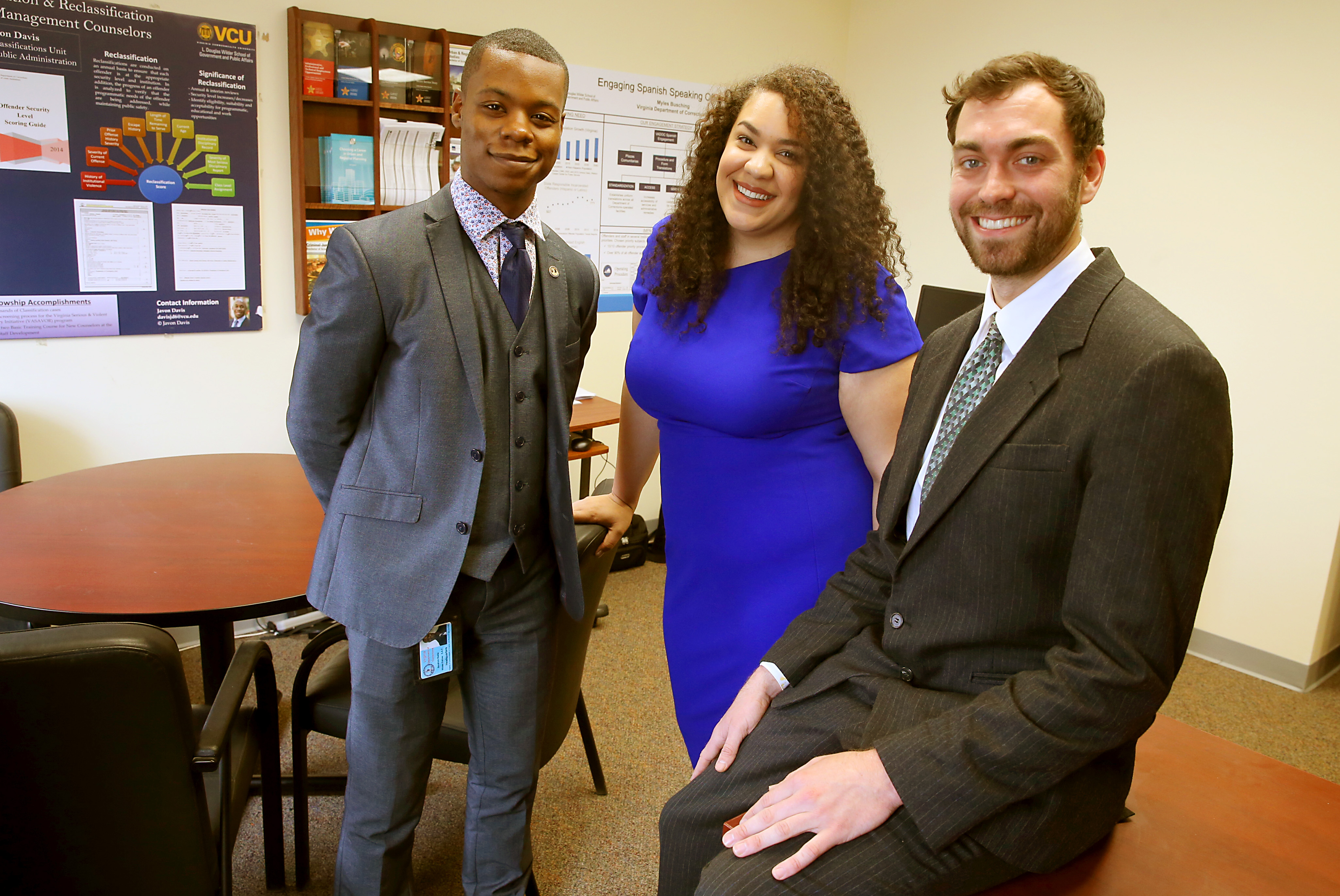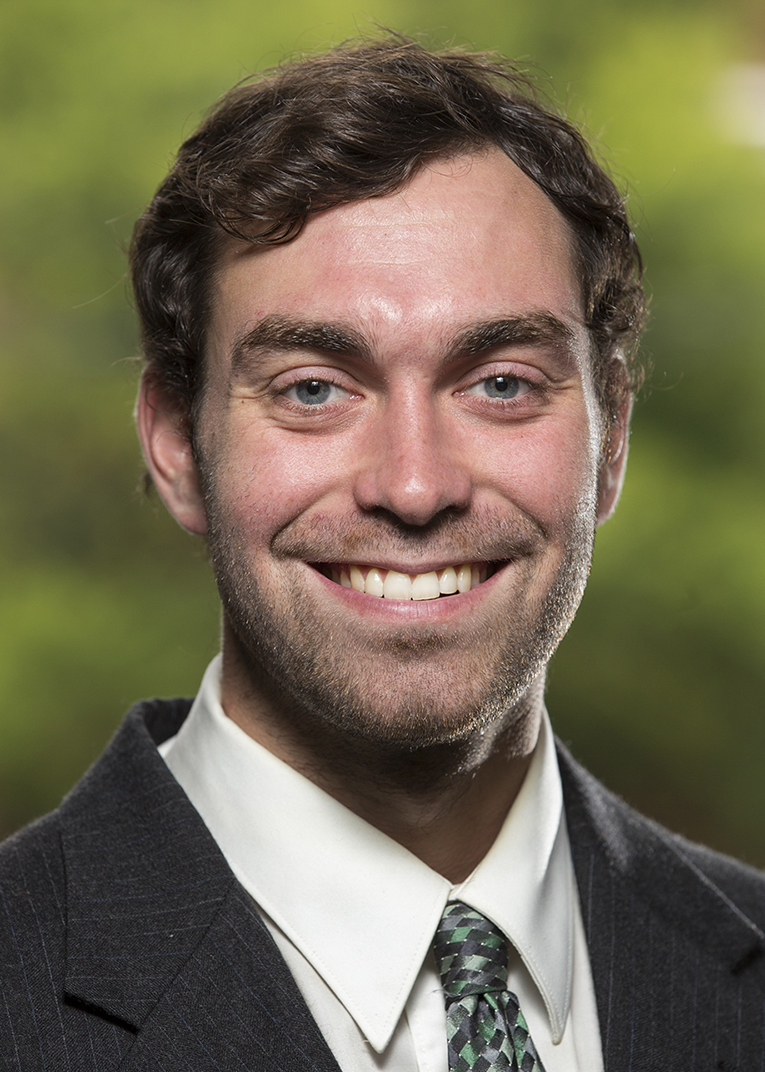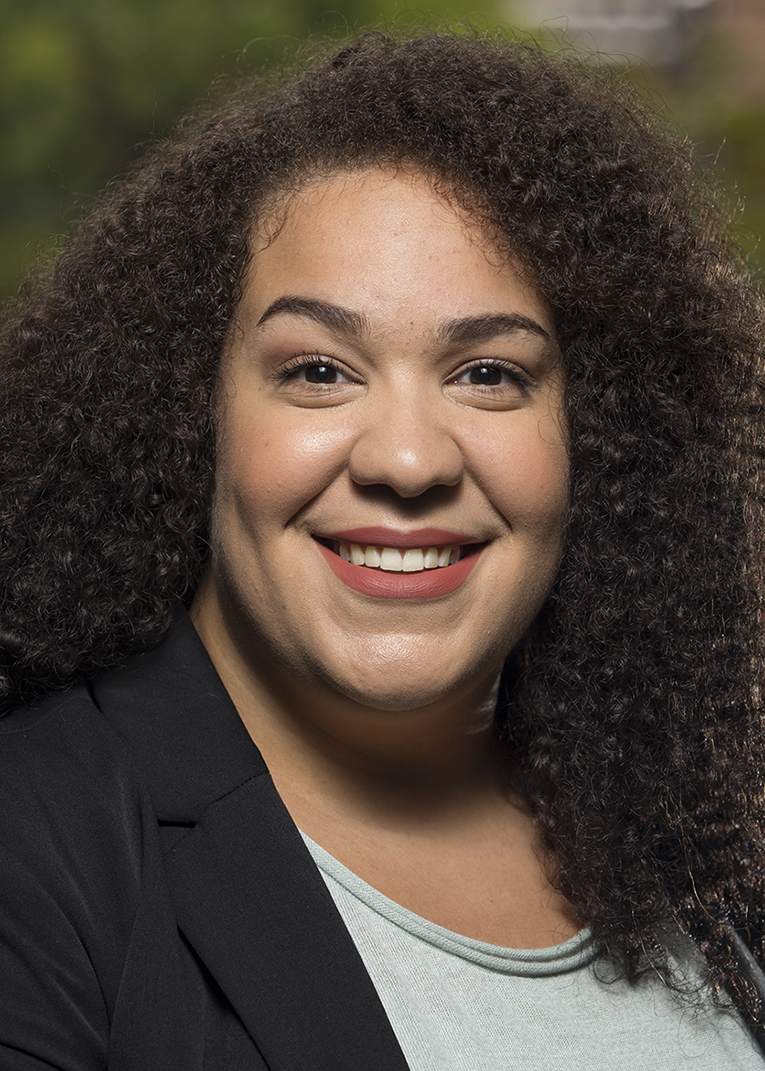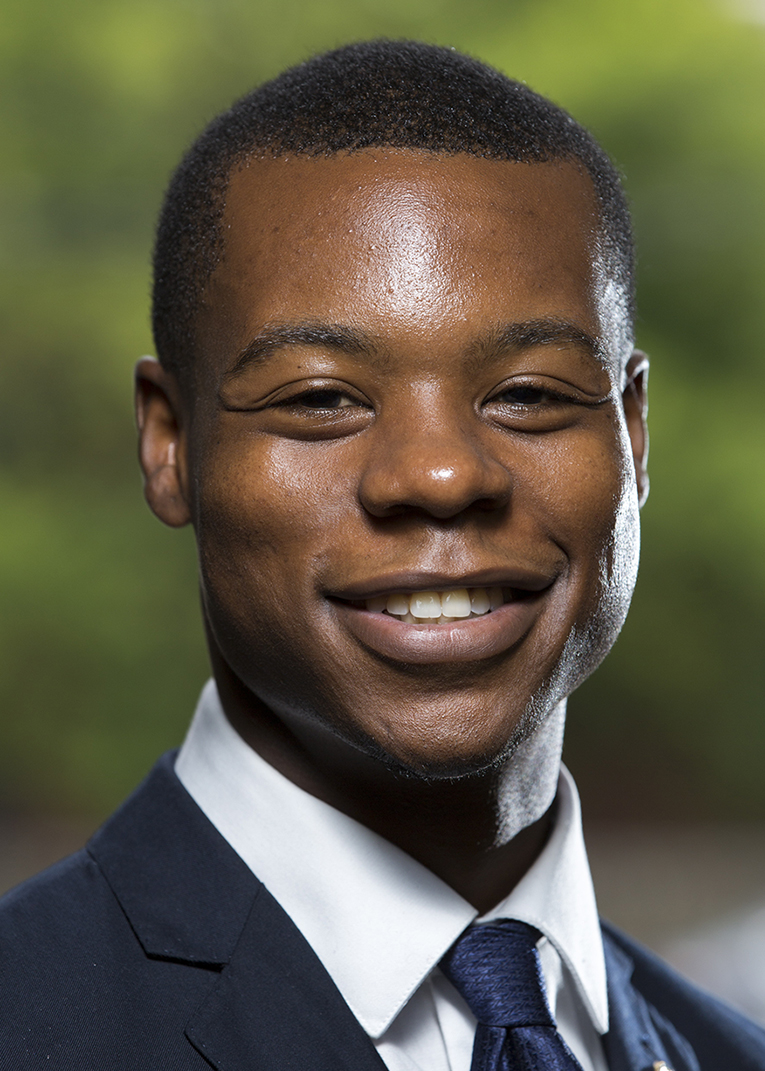News
Wilder Fellows Take on State Challenges

By Tiffany Murray-Robertson
Inside meetings with career policy analysts, administrators and statisticians, junior staff members hear issues confronting some of the commonwealth’s largest and most impactful agencies. At the Virginia Department of Corrections, they consider services that bridge the gap between families and the incarcerated to better support reentry after release. At the state’s Department of Social Services, they listen to the concerns of local child protective services workers who are struggling to balance heavy caseloads with the completion of dozens of state mandated training courses. And, at the Virginia Retirement System, they simplify complex changes in benefit and actuary guidelines into a handbook that can be easily accessed and understood by employees.
Although the newcomers in these agencies are there to address some of state government’s most pressing problems, they aren’t from government at all. They are among the top minds of the Wilder School’s graduate programs—students who have distinguished themselves through stellar academic achievement and a yearlong commitment as a Wilder Graduate Scholars Fellow.
Launched in 2006 by the program’s inaugural director, Susan Gooden, Ph.D., the Wilder Graduate Scholars Fellowship provides funding for participants in exchange for part-time experience in state agencies, public interest groups and nonprofit firms in metro Richmond. Each Fellowship comes with in-state tuition and a generous stipend that helps to defray the cost of attendance and living expenses for the school’s most competitive graduate students.
“The Wilder Fellowship is designed to be mutually beneficial to both the student and host employer,” said Shajuana Isom-Payne, director of the Wilder School’s Office of Student Success, which now administers the program.
“This is not merely an assisting experience. We want it to be an integrated, immersive assignment. Fellows are not interns,” Isom-Payne emphasized.
“They are members of their host employer’s staff who can be called upon to produce meaningful deliverables. In return, they get a sense of what the real world is like and the chance to do a deep dive into public service and better understand practitioner issues.”
Behind their cubicles, Fellows provide fresh insight and timely support to their employers. Last year, staff changes in VADOC’s Statistical Analysis and Forecasting unit created two vacancies that made it a scramble to produce numerous monthly forecasts and legislative impact reports. In jumped unit manager Warren McGehee (MPA, ’95), who hired a Wilder Fellow who brought youthful enthusiasm, substantive analysis and project management skills to offset the staff shortage.
“He saved the day,” said McGehee, “and really allowed us to leverage his efforts to meet project goals and deadlines without interruption.”
In the decade since it was established, 44 host employers have participated in the program. Collectively, hosts have helped to support the careers of 98 Fellows by providing nearly $2.1 million in tuition assistance. Now in its 11th year, the Wilder Fellowship has become a featured attraction for public sector employers who are interested in recruiting and developing talent from the school’s diverse academic programs and exceptional students who are willing to embed themselves in a professional workplace while pursuing their graduate education. It’s a partnership that’s working.
In the decade since it was established, 44 host employers have participated in the program. Collectively, hosts have helped to support the careers of 98 Fellows by providing nearly $2.1 million in tuition assistance.
We sat down recently with three Wilder Fellows, each members of the Class of 2017, and their host employers to find out why.
Joseph Costello
 Joseph Costello, a graduate of the Master of Urban and Regional Planning program from Yorktown, Va., came to the Virginia Department of Social Services with a unique set of skills: supporting lawyers and their clients—primarily mortgage lenders and financial institutions—through the high-pressure tedium of bankruptcy proceedings.
Joseph Costello, a graduate of the Master of Urban and Regional Planning program from Yorktown, Va., came to the Virginia Department of Social Services with a unique set of skills: supporting lawyers and their clients—primarily mortgage lenders and financial institutions—through the high-pressure tedium of bankruptcy proceedings.
For nearly three years, Costello worked as a paralegal writing pleadings that generated enough revenue to make him a standout among his peers, but without, he said, any sense of achievement.
“At the end of the year, I’d reflect on my work and I’d think, OK, I took all of these incomplete assignments and completed them for a price, for someone else’s benefit,” he said.
“I didn’t want to wake up after 10 years feeling the same way. I wanted to do something that produced outcomes I could be proud of.”
Costello left the bankruptcy firm and enrolled in the MURP program in 2015. It was a move he attributed directly to the Wilder Graduate Scholars Fellowship.
“I’d been considering pursuing planning since my days as an undergraduate at Christopher Newport University. But it was the reality of the transition that left my wheels turning. How would I handle my growing student loans, while supporting myself and my dog during the process?
“Receiving the Wilder Fellowship motivated me to make the transition. I saw it as a chance to realize a personal goal while making an impact.”
Costello’s role at VDSS has been to help the agency evaluate training and retention strategies for the 2,900 family services workers who manage adoption, foster care and child protective services for children in Virginia.
Their challenge: How can VDSS help to facilitate the completion of dozens of mandated trainings amid heavy caseloads, particularly in rural localities where limited workers serve multiple functions and populations? And how might the current model of training evolve to improve outcomes for children and worker retention?
Costello has addressed these issues by focusing on national best practices in training and retention in the field and the evaluation of the state’s training system.
“My project has been to design and administer a survey of directors and family services personnel in each of the state’s 120 local social services departments. I then used that data to conduct a bivariate analysis—using SPSS and GIS technology—that examines the impact of agency size, location and worker composition on training completion, worker preparedness and training satisfaction,” he said.
“The goal is to create a data-driven approach to training evaluation that can evolve to meet the needs of child welfare workers, ensure higher retention of workers and improve outcomes for children.”
With a passion for research and an eye for detail honed by years as a paralegal, Costello had a blend of knowledge and potential that VDSS was looking for, said Judy Gundy. Gundy is the manager of training for the Division of Family Services at the department and has served as Costello’s supervisor since the start of his fellowship.
“Joe really brought a high level of intellectual ability and capacity that has been able to move this project forward. It’s rare in the field of child welfare to be able to do a training evaluation that goes beyond a survey measure of trainee satisfaction,” she said.
“What Joe helped us accomplish both through his own intellectual heft and his ability to run with our questions was a deep dive into the data. The result has been a sophisticated analysis that provides a much broader, systemic view of the issues on a statewide basis.
“The distinction,” said Gundy, “between Joe and other graduate students that we’ve had in the past is that as a Fellow he really had the time and capacity to sink his teeth into the work. This is certainly an investment that I would recommend to other employers.”
Lashelle Johnson

For Lashelle Johnson, a graduate of the Master of Public Administration program, the Wilder Fellowship has been a kind of professional laboratory—a safe space to experiment with different methodologies and unearth new talents.
“I wasn’t sure when I first heard I’d been selected for an interview with the Wilder School’s Survey and Evaluation Research Lab if it would be a good fit,” said Johnson, who grew up in Salem, Va.
After all, it was clear from the job call that the host was looking for a Fellow to conduct qualitative analysis. Johnson, who had once considered majoring in bioinfomatics, has always been decidedly more at home with numbers.
“In spite of that, I immediately felt comfortable when I met with my supervisor. Our conversation was all about my strengths, what I knew, what I wanted to know and how they could help me grow.”
It’s not every day that a person is hired to play against type, thought Johnson, who leapt at the chance to step outside her comfort zone. It’s a decision that has allowed her to serve in a number of capacity building roles at SERL.
SERL provides a range of research and evaluation services for governmental units, public and private nonprofit agencies, and conducts surveys, data analysis and written reports.
For Johnson, the post has given her an opportunity to work with a variety of internal clients from the Office of the Provost to VCU Health. She is currently managing a study for the Virginia Department of Health designed examine the working conditions of personnel who service at-risk families.
“Lashelle’s knowledge and familiarity with research processes is emblematic of the Fellows we’ve hired in that past,” said Jennifer Reid, Ph.D., a senior research associate and Johnson’s Fellowship supervisor.
“We know when we get a Fellow that there’s a level of competence that we can be assured of. At the same time, we see it as an opportunity for mutual exchange and encourage our fellows to step outside the box and try new things.”
For Johnson, this has been the hallmark of the Wilder Fellowship. Her client list notwithstanding, her favorite project has involved learning to code qualitative data.
“Turning words into numbers that can be translated into themes is an arduous process,” said Johnson.
“It took weeks but I’ve learned this skill at SERL from the ground up. It’s one of the many skills I’ve learned in my Fellowship year that seems to pique the interest of prospective employers.”
Recently, Johnson was asked to develop an instructional code book for SERL’s part-time employees.
“That’s a lot of faith,” said Johnson, adding, “it’s that sense of expectation that makes the Wilder Fellowship truly special.”
Ibrahim Keita

Ibrahim Keita, an M.P.A. graduate from Alexandria, Va., was at a professional crossroads when he first encountered the Wilder Fellowship. Within months of graduating with his bachelor’s degree in marketing from the VCU School of Business, Keita landed a job at a well-known retailer as an executive team leader of logistics.
Regrettably, it wasn’t long before he realized that the impressive title and competitive salary were a poor fit for his aspirations.
“I hated it,” said Keita. “The job was 12 hours a day, supervising teams, ensuring shipment and managing inventory. It was a real grind but a great start for someone with my academic background. Unfortunately, I just didn’t care about any of it.”
Before the retailer, Keita dreamed of ascending the ranks of a Fortune 500 company, engaging his more altruistic interests through employment at a socially responsible company or personal philanthropic activity.
“But the job,” said Keita, “was a wake-up call. Suddenly that seemed like the long way home. It just didn’t make any sense.”
One day while at a meeting, Keita looked down at his feet astonished. Within eight weeks, the soles of his loafers, a coveted graduation gift from his grandmother, had been worn to shreds. In an instant, said Keita, the shoes had become a metaphor for his disenchantment with corporate life.
“That was it,” said Keita. “That was the moment I decided to quit. I had a heart-to-heart with my manager who was very kind and I left the job the following month.”
Keita may have left the retailer, but he did so without a net. He spent the next nine months underemployed performing odd jobs in the evening, first in janitorial services and later in security.
“There were months when I made $600 and my rent was $527,” said Keita, whose parents, both immigrants from West Africa, were concerned.
“I told them not to worry. And at night, when I had to clean office spaces, I told myself I was paying dues.”
Working nights left Keita’s days open for informational interviews with executives in state and local government. He learned of the Wilder Fellowship during one such interview with William Leighty, a former gubernatorial chief of staff.
“Bill told me that the Wilder School was the right place for me and that the Fellowship would give me the public service perspective I was lacking,” said Keita.
“I believe when smart people give you advice, you should try to listen.”
Keita enrolled in the M.P.A. program in 2015, accepting a Wilder Fellowship in the Virginia Department of Corrections' Statistical Analysis and Forecasting Unit the following year. Since then, he’s become a fully integrated member of the unit, which provides statewide population and trend data on the state’s 29,000-member offender population.
The unit, he said, “is a pivotal unit of dedicated professionals. Together, the team conducts research, data analysis and reporting of outcomes that can be used in corrections strategic planning, policy guidance, program assessment and decision making.”
Keita’s role has been to support monitoring and compliance within the department. Each week, he sorts through offender data to provide statistical reports on prison resources and capacity. He’s also used his data mining skills to contribute to numerous legislative impact reports. These reports reflect the estimated increase in annual operating costs to the VADOC attributable to any proposed bill under consideration at the General Assembly, should the bill become law.
“That’s been a particularly enlightening experience,” said Keita. “It’s one of the many ways in which the unit supports sound policymaking."
Keita’s most recent project at VADOC includes a survey and assessment of “Dialogue,” a communications model initiated by the department’s commissioner, which is designed to promote quality, collaborative decision-making.
“I was fascinated by the concept when I arrived at the department. I wanted to know how it worked and if it worked. Were there differences in the efficacy of the approach among line and managerial staff? As with many of my interests, my supervisors were gracious and allowed me to run with it,” said Keita.
Keita’s flexibility and his innate sense of teamwork are part of what has made him a valued employee, said Tama Celi, Ph.D. (Ph.D. ’04). She is chief of research, policy and planning at VADOC and supervised Keita along with the unit manager, Warren McGehee.
“Ibrahim has really acted as a full-time analyst within the unit. He’s hit the ground running and picked up things as quickly as we would we would expect any new, credentialed full-time employee,” Celi said.
“For VADOC, the short-term benefit of the Wilder Fellowship has been an extra set of competent hands. The long-term benefit is that it has helped us to introduce corrections as a career path to great employees who might not have otherwise considered it.”
Keita agrees.
“Working at VADOC has been great for me and while I was excited about the Fellowship I did not expect to find myself so at home interpersonally or professionally. Instead, the experience has been eye-opening,” he said.
“In my unit, we have individuals with backgrounds in research, biology, public administration and public health. It’s been a real pleasure to work talented professionals who have similar passions but different approaches. It’s also given me a chance to flex new skills and assess my talents. If it wasn’t before, corrections is definitely in the cards now.”